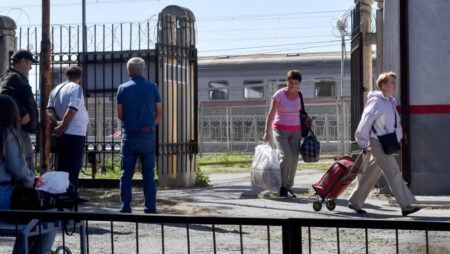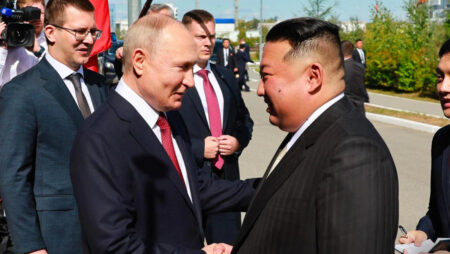Ukraine-Russia Conflict: Precisely what a weak world economy didn’t require, a contention that speeds up expansion, clatters advertise, and predicts inconvenience for everybody from European purchasers to obligated Chinese designers and families in Africa that face taking off food costs.
Russia’s assault on Ukraine and retaliatory approvals from the West may not predict another worldwide downturn. The two nations together record for under 2% of the world’s GDP.
Also, numerous provincial economies stay in solid shape, having bounced back quickly from the pandemic downturn.
However, the contention takes steps to cause serious monetary harm for specific nations and ventures, the harm that could mean difficulties for a large number of individuals. Russia is the world’s third-greatest oil maker and a significant flammable gas exporter.
Ukraine’s homesteads feed millions all over the planet. Furthermore, monetary business sectors are in a dubious spot as national banks plan to turn around extended periods of pain-free income approaches and raise loan fees to battle a resurgence of expansion.
Those higher rates will probably sluggishly be spending and increase the gamble of another slump.
“I wouldn’t be misdirected simply by computing GDP ratios…. especially when production costs are high, expansion is now high,”
said Elina Rybakova, vice president financial analyst at the Institute of International Finance, an exchange bunch for banks.
“It’s a precarious second presently, considering where the worldwide economy is”
Russia’s assault could slow Europe’s monetary recuperation by sending previously raised energy costs ever higher.

Europe, an energy shipper, gets near 40% of its petroleum gas from Russia. An end of that energy source could undermine the mainland’s economy. High gaseous petrol costs have as of now prompted higher home service bills for both flammable gas hotness and power produced from gas, creasing purchaser spending.
Russia’s intrusion of Ukraine conveys colossal dangers for a world economy that is yet to recuperate from the pandemic shock completely.
The contention resembles the most genuine conflict in Europe beginning around 1945. Russian powers did airstrikes, caught armed forces, and progressed toward Kyiv as regular citizens escaped. Western authorities said the capital might fall whenever, with its air protections disposed of.
The attack followed a long time of pressures that generally sent quakes through the world economy by tightening up energy costs. Oil momentarily moved past $100 a barrel, interestingly starting around 2014, while European flammable gas hopped at 62%. That sped up on Thursday.
As Ukraine battles for endurance, Western state-run administrations find ways to rebuff Russia. They’re mindful that they could elevate the contention’s effect on their economies like this.
U.S. President Joe Biden – who on Thursday reported new authorizes that focus on Russia’s banks and its capacity to exchange dollars – has cautioned that there’ll be likewise a cost to pay at home, where costly fuel is now disintegrating his help among electors.
The pandemic has left the worldwide economy with two central issues of weakness – high expansion and unsteady monetary business sectors. Delayed repercussions from the attack could deteriorate both without much of a stretch.
There’s a danger to development as well. Families spending a more significant piece of their salaries on fuel and warming will have less money for different labor and products. Plunging markets would add another drag, hitting abundance and certainty and making it harder for firms to tap assets for speculation.
For national investors, the twin test – of overseeing costs and keeping their economies developing – will settle the score harder. The Federal Reserve and European Central Bank have been outfitting to fix money-related strategies. The Russian emergency might compel a reexamine.

Three Economic Scenarios as Russia Attacks
In the initial, a quick finish to battling forestalls a further vertical winding in product markets, keeping U.S. furthermore European financial recuperations pretty much on target. National investors would need to change their arrangements, not piece them.
In the following situation, a delayed clash, more brutal Western reaction, and interruptions to Russia’s oil and gas commodities would convey a tremendous energy shock and a significant disaster for worldwide business sectors. That would probably forget about ECB rate climbs this year, while Fed fixing would dial back.
A most pessimistic scenario would see Europe’s gas supply cut off, setting a downturn. In contrast, the U.S. would see fundamentally more tight monetary circumstances, a more significant hit to development, and a uniquely more hesitant Fed.
Wars are innately erratic, and the actual result will probably be more chaotic than any of these adapted forms. Wild swings in monetary business sectors Thursday outlined the vulnerability. The situations should assist with drafting pondering potential ways forward.
Edited by: Mahi Gupta
Published by: Vishakha Verma












